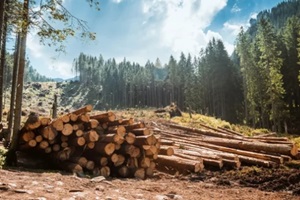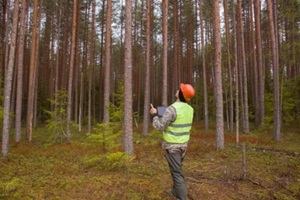
The forestry industry is notoriously full of opportunities for injury, equipment damage, property or environmental damage, and more. The Occupational Safety and Health Administration labels forestry work as the single most dangerous occupation in the United States—and for good reason.
Forestry insurance is a non-negotiable part of the package for businesses that want to be prepared when (not if) an accident occurs. Forestry business owners and managers looking to enhance their insurance coverage by identifying and mitigating potential risks can do so through professional assessments.
Working with an industry expert to find your company’s greatest vulnerabilities can help you choose insurance policies customized to your specific risks without overpaying for coverage you will not use.
Here is what your company needs to know about professional risk assessment.
Comprehending Forestry Insurance
Every forestry business is different and will require different insurance coverage. Sawmill protection is useless for a lumber transport company but is non-negotiable for timber-processing facilities. Despite this high level of variance, some insurance policies are beneficial or required, no matter the industry niche. These include:
- General liability insurance – Forestry companies may be responsible for damage to other people’s property, such as falling trees and heavy machinery, or harm to uninvolved parties. If this occurs, general liability insurance can pay for the cost of medical bills, property replacement, and more.
- Workers’ compensation insurance – Workers are frequently injured in logging work. Workers’ compensation insurance can cover their medical bills, rehab expenses, time off work, and even funeral costs in the unfortunate event that they pass away due to a work-related incident.
Most forestry companies will be required to carry both general liability insurance and workers’ compensation in order to secure permits for the tracts of land they intend to work on.
What is a Professional Risk Assessment?
While some insurance is mandatory, smart forestry businesses don’t stop there; they secure a wide range of policies that address other needs. A professional risk assessment is the process of hiring a professional to identify which risks your company is most likely to face so that you can select the insurance coverage that protects your business from the consequences of those risks.
A company can conduct a risk assessment on its own. However, contracting with a professional is recommended because they can provide industry knowledge that is more thorough than what a business owner might have access to.
DIY assessments also do not impact insurance, whereas a professional assessment may work alongside your insurance company to potentially adjust rates or secure additional coverage.
Benefits of Professional Risk Assessments
Risk assessments offer numerous benefits that forestry companies can enjoy, including:
- Accurate identification of risks
- Personalized insurance recommendations
- Enhanced coverage and protection
- Policies customized to specific risks
- Risk-appropriate coverage limits
- Lower insurance premiums
Steps Involved in a Professional Risk Assessment
A professional risk assessment is a thorough endeavor—or at least it should be if you select a trustworthy assessor. Most risk assessments proceed as follows:

- Step 1: Initial consultation and data collection – The assessor will ask questions about your company’s business practices and collect data on previous incidents, insurance claims, and risks specific to your niche.
- Step 2: Site inspection and hazard identification – The assessor will then visit the work site in person to review risks on-location, from how machinery is operated to site issues in general.
- Step 3: Report generation and recommendations – Once the assessor has collected data from the company’s history and present work, they will create a report detailing the most salient risks for the business. From there, they can recommend the type of insurance coverage to pursue and whether any existing policies are superfluous.
Once your business has secured the professional risk assessment report, you can share it with your insurance company to reap additional benefits, such as lower insurance premiums. Suppose the assessor finds that your company behaves favorably, such as by investing in worker training or maintaining strict safety protocols on-site. In that case, this can alter your risk profile for the insurer, leading to reduced rates.
Get Your Forestry Insurance With Burton & Company
Forestry insurance is not something to leave to chance because, in this industry, accidents are a “when,” not an “if.” The experts at Burton & Company can leverage our expertise in forestry insurance to provide thorough risk assessment services personalized to your business.
By identifying your greatest risks, you can better protect your team, investments, and future. Contact Burton & Company for a consultation to create a mixture of insurance coverages customized to your risk profile.

